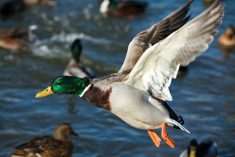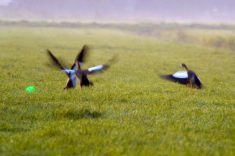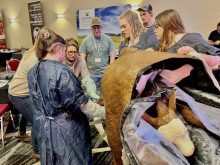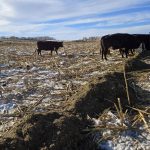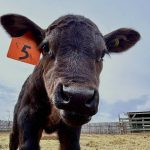Manitoba has reported its first farm infection of bird flu in about a decade, joining surrounding states and provinces that have already fallen prey to the virus.
Manitoba poultry farmers were on high alert after wild birds in two locations tested positive for the avian flu strain H5N1. On April 20, the province confirmed the virus in samples taken from snow geese near Waskada as well as a bald eagle near Dauphin.
Days later, the Canadian Food Inspection Agency (CFIA) announced the first farm case. A poultry flock in the Municipality of Whitemouth, east of Winnipeg, had tested positive for highly pathogenic avian influenza.
Read Also
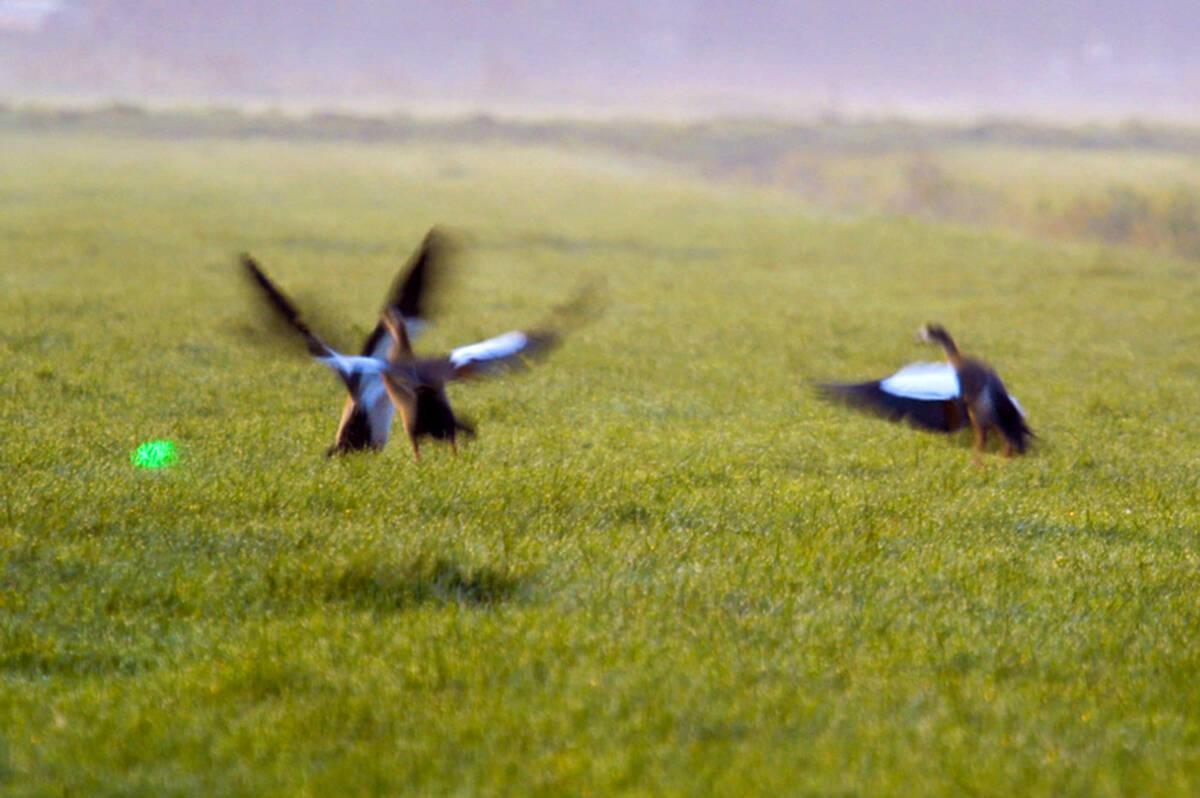
Canada’s import ban on Avix bird control system ruffles feathers
Canadian producers’ access to Bird Control Group’s Avix laser system remains blocked despite efficacy studies and certifications, as avian flu deaths rise.
Why it matters: Neighbouring states and provinces in three directions from Manitoba are reporting increasing H5N1 infections on farms.
Manitoba had been at the centre of a slowly closing area not affected by an international outbreak of H5N1.
- Read more: Managing Manitoba’s growing animal disease watch list
- Read more: Spring planting work can kick up avian flu, feather sector warns
Jake Wiebe, chair of the Manitoba Chicken Producers, said they are urging members to lock down biosecurity practices, including changing foot ware upon barn entry and vigilant disinfection.
The sector limits access to the vicinity of barns “generally, but certainly other than service or feed trucks, we really don’t want anyone in that area,” he said.
The bigger concern, he added, are backyard flocks.
Migratory birds are the main vector for HPAI, one of the issues that makes controlling the disease difficult. Backyard flocks, meanwhile are often at most risk, given more their common access to the outdoors, and thus greater chance of direct contact with infected birds.
Should a small flock become infected, “it affects all of us,” Wiebe said. “because suddenly we’re in a risk zone.”
Backyard and free-range flock owners are being urged to keep birds inside to reduce risk, Manitoba Egg Farmers vice-chair Harold Froese said.
They have released similar messaging as the Manitoba Chicken Producers to their members. Biosecurity and vigilance has been stressed, while producers have also been urged to monitor and follow reporting protocols, should they suspect their birds are ill.
“We encourage farmers to watch their contacts with their neighbours, other people in the area, just to reduce the risk,” Froese said. “These migratory bird patterns happen every year, so it’s just something that we have to be prepared for.”
At the time of writing, no infected farms had been reported, according to Dr. Scott Zaari, chief veterinary officer for the province. He said, however, that his office is expecting to report more wild cases in the coming weeks and months.
In the U.S., circumstances since early 2022 have morphed into the worst HPAI outbreak in years. As of April 25, the U.S. Department of Agriculture estimated that almost 31.7 million commercial birds had been affected. North Dakota infections counted 13 premises.
Canadian farm cases spread from the Maritimes in late 2021 into Ontario, and then on to Quebec, British Columbia, Alberta and Saskatchewan.
As of April 21 (the most recent update available), CFIA reported 35 premises infected nationwide – including one near Douglaston, Sask., half an hour from the Manitoba border—impacting over 717,000 birds. Since then, three more cases in Saskatchewan, four in Alberta, two in Ontario and one in Quebec have been reported.
Outside ag
The cases come during Manitoba’s spring hunting season for wild turkey and several species of geese. Maria Arlt, director of the province’s fish and wildlife branch, urged hunters and other members of the public to take care.
The risk of bird-to-human transmission is low, she said, but still urged people to avoid touching dead birds and wear gloves if contact is necessary. Masks and protective eyewear were also encouraged, she said, and hands should be washed or sanitized afterwards.
Bird feeders still get the green light for most people, although they should be regularly cleaned, she said. Poultry farm residents, however, should take feeders down.
The public is being asked to report suspicious bird deaths. Clusters of six or more dead waterfowl, any dead raptors, any scavengers like gulls or ravens or large numbers (20 or more) of any kind of dead bird should be reported at 1-800-782-0076.





